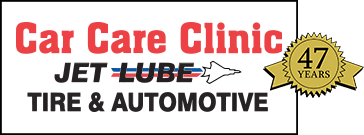As winter descends, we often find ourselves spending more on fuel. Lower temperatures can significantly affect your vehicle’s fuel efficiency, making it one of the many expenses that increase during the chilly season. However, you don’t have to break the bank to keep your car running. In this article, we’ll explore some practical tips on how to maximize your fuel efficiency during winter months.
Why Does Fuel Efficiency Decrease in Winter?
Before diving into the tips, it’s important to understand why fuel efficiency suffers during winter. The reasons include:
- Engine and Oil Inefficiency: Cold temperatures cause motor oil to thicken and engines to work harder, consuming more fuel.
- Increased Electrical Load: Using the heater, defrosters, and seat warmers draws more power, thus lowering efficiency.
- Tire Pressure Fluctuations: Cold air can reduce tire pressure, increasing rolling resistance and thereby affecting mileage.
- Shorter Trips: Engines are most efficient at their optimal operating temperature, which takes longer to reach in colder weather, making short trips less fuel-efficient.
Tips for Maximizing Fuel Efficiency
Keep Your Engine Warm
If possible, park your car in a garage to keep the engine warmer overnight. A warmer engine is more efficient than a cold one and will consume less fuel during startup.
Check Tire Pressure Regularly
Maintaining optimal tire pressure is crucial for fuel efficiency. Keep a tire gauge in your glove compartment and check the tire pressure weekly, adjusting it according to the manufacturer’s recommendations.
Use the Right Motor Oil
Winter-grade motor oil can improve fuel efficiency because it flows more easily in low temperatures, reducing engine workload. Check your owner’s manual for the manufacturer’s winter oil recommendations.
Limit the Use of Electrical Accessories
While it’s tempting to keep the heater, seat warmers, and rear window defroster running, try to use them only when necessary to reduce electrical load.
Plan Your Trips Wisely
Consolidate errands into fewer trips to ensure your engine stays at its optimal operating temperature for longer periods, thus improving fuel efficiency.
Drive Smoothly
Aggressive driving, such as rapid acceleration and hard braking, can lower your fuel mileage. Drive smoothly and maintain a consistent speed whenever possible.
Minimize Idling
Idling can consume half a gallon to one gallon of fuel per hour, depending on your engine size and the use of your car’s accessories. If you’re going to be stopped for more than a minute, it’s more fuel-efficient to turn off the engine and restart it when you’re ready to move.
Keep Your Car Well-Maintained
A well-maintained car runs more efficiently, regardless of the season. Regular tune-ups, air filter changes, and fluid checks can all contribute to improved fuel efficiency.
Conclusion
Winter driving comes with its own set of challenges, including reduced fuel efficiency. However, by taking a few proactive steps, you can keep your fuel costs in check. For professional assistance and more tips on maximizing fuel efficiency, don’t hesitate to visit any of our 14 Car Care Clinic locations. Our team of experts is here to help you with all your vehicle needs.
Remember, winter doesn’t have to be a season of inflated fuel bills. Drive smart, stay warm, and maximize your fuel efficiency. We hope to see you soon at Car Care Clinic!


